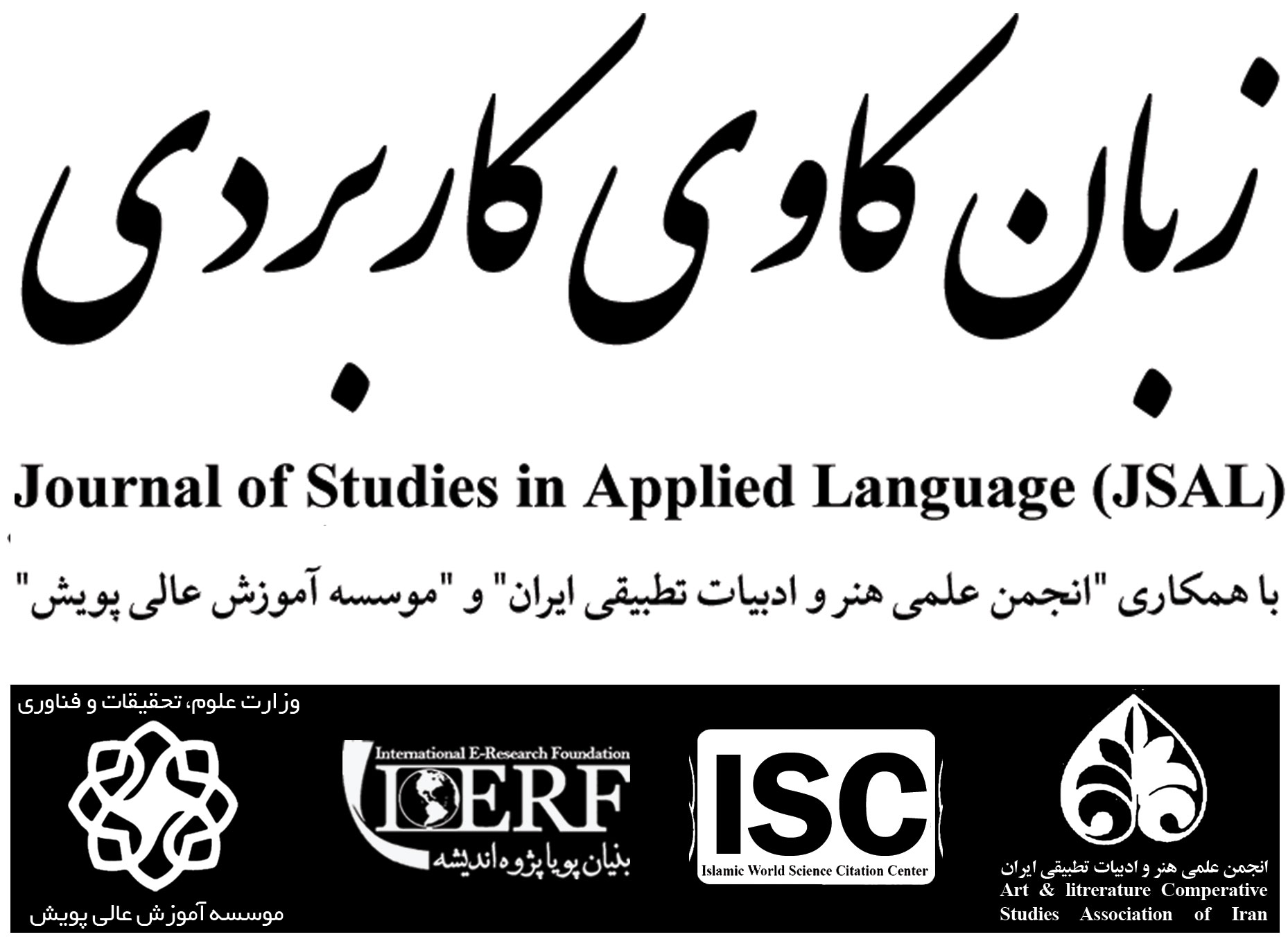دوره 5، شماره 2 - ( آموزش زبان، ادبیات و زبان شناسی 1401 )
جلد 5 شماره 2 صفحات 22-1 |
برگشت به فهرست نسخه ها
Download citation:
BibTeX | RIS | EndNote | Medlars | ProCite | Reference Manager | RefWorks
Send citation to:



BibTeX | RIS | EndNote | Medlars | ProCite | Reference Manager | RefWorks
Send citation to:
Abiri H. (2022). A study on the verbal treatment of finite and non-finite clauses in Persian active-passive sentences confronting with PRO according to cognitive linguistics [In English]. JSAL. 5(2), 1-22.
URL: http://jsal.ierf.ir/article-1-33-fa.html
URL: http://jsal.ierf.ir/article-1-33-fa.html
عبیری حمید.(1401). بررسی برخورد کلامی جملات متناهی و غیر متناهی در جملات فاعل-مفعول فارسی در مواجهه با PRO بر اساس زبان شناسی شناختی [به انگلیسی] زبان کاوی کاربردی 5 (2) :22-1
دانشجوی دکتری، گروه زبان های خارجی، دانشگاه آزاد اسلامی واحد خمین، مرکزی، ایران ، hamidabiri22@yahoo.com
چکیده: (2860 مشاهده)
واژه PRO به عنوان زیرساختی در مطالعات زبانشناسی در نظر گرفته می شود که اولین بار توسط زبان شناسان در دهه 1970 بیان شد. زبان شناسان شناختی نیز مطالعات زیادی در این زمینه انجام داده اند. پژوهش حاضر با هدف پرداخت کلامی -فارسی در صداهای فعال و غیرفعال جملات متناهی و نامتناهی در مواجهه با PRO بر اساس زبان شناسی شناختی انجام شده است. بدین منظور در ابتدا هر طبقه بندی از افعال فارسی معرفی و بررسی می شود. فرضیه اصلی این تحقیق این است که تمام افعال فارسی در مواجهه با PRO رفتار یکسانی دارند. سپس افعال با هم مقایسه می شوند و جدول بهبود، ارائه می شود. در پایان تمامی افعال فارسی با هم مقایسه شده و در جدول نتیجه، نحوه برخورد افعال فارسی در مواجهه با PRO ترسیم شده است. نتایج این مطالعه نشان میدهد که افعال فارسی در مقابل PRO رفتار متفاوتی از خود نشان دادهاند و عملکرد مشابهی ندارند. مهمترین نتیجهگیری این مقاله نشان میدهد که افعال فارسی در صداهای فعال متناهی نسبت به PRO واکنش مثبت نشان میدهند، به این معنی که وجود PRO در این طبقه امکانپذیر است، در حالی که در صداهای فعال نامتناهی، PRO یافت نشد که در این شرایط به معنای in باشد. افعال فارسی به PRO واکنش منفی نشان می دهند. و در نهایت افعال فارسی در صداهای مفعول رفتار ناپایداری دارند و به گونه ای متفاوت رفتار می شوند. در آواهای مفعول متناهی افعال فارسی به جز یک طبقه بندی از افعالی که با PRO برخورد منفی داشتند، گروه های دیگر هم موضع مثبت و هم منفی گرفتند که در برخی موارد وجود PRO را مجاز دانستند و در برخی موارد PRO مشاهده نشد. در نهایت در صداهای غیر متناهی مفعول افعال فارسی، به جز یک گروه از افعال، دسته بندی افعال دیگر در برابر PRO موضع منفی گرفت که به این معنی است که PRO در این طبقه یافت نشد، بلکه گروهی از افعال، در برابر PRO حالت خنثی گرفتند.
نوع مطالعه: پژوهشي |
موضوع مقاله:
زبان شناسی اجتماعی
دریافت: 1399/12/12 | پذیرش: 1400/1/12 | انتشار: 1400/1/29
دریافت: 1399/12/12 | پذیرش: 1400/1/12 | انتشار: 1400/1/29
ارسال پیام به نویسنده مسئول
| بازنشر اطلاعات | |
 |
این مقاله تحت شرایط Creative Commons Attribution-NonCommercial 4.0 International License قابل بازنشر است. |






